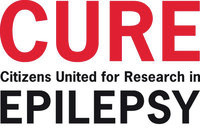Anya Howard is the Romance pseudonym of a Tennessee writer and columnist. Her romantic novels and stories are erotica-oriented and Alpha-male friendly, and penned with a positive nod to loving M/F bondage/discipline relationships. Her stories and novels have been released by such publishers as Kensington Aphrodisia, Lyrical Press and Swan Mountain. Anya makes her home in the hills of East Tennessee with her husband and family.

Join the private Readers of Anya Howard community today.

Thousands of epilepsy patients suffer permanent injury or death from epilepsy each year, including children. Anya invites concerned visitors to learn more about ongoing research into epilepsy by visiting the link to CURE: Citizens United for Research In Epilepsy.
Epilepsy Facts (courtesy of CURE)
- Epilepsy affects over 3 million Americans of all ages – more than multiple sclerosis, cerebral palsy, muscular dystrophy, and Parkinson’s disease combined. Almost 500 new cases of epilepsy are diagnosed every day in the United States. Epilepsy affects 50,000,000 people worldwide.
- In two-thirds of patients diagnosed with epilepsy, the cause is unknown.
- Epilepsy can develop at any age and can be a result of genetics, stroke, head injury, and many other factors.
- In over thirty percent of patients, seizures cannot be controlled with treatment. Uncontrolled seizures may lead to brain damage and death. Many more have only partial control of their seizures.
- The severe epilepsy syndromes of childhood can cause developmental delay and brain damage, leading to a lifetime of dependency and continually accruing costs—both medical and societal.
- It is estimated that up to 50,000 deaths occur annually in the U.S. from status epilepticus (prolonged seizures), Sudden Unexplained Death in Epilepsy (SUDEP), and other seizure-related causes such as drowning and other accidents.
- The mortality rate among people with epilepsy is two to three times higher than the general population and the risk of sudden death is twenty-four times greater.
- Recurring seizures are also a burden for those living with brain tumors and other disorders such as cerebral palsy, mental retardation, autism, Alzheimer’s disease, stroke, multiple sclerosis, tuberous sclerosis, and a variety of genetic syndromes.
- There is a strong association between epilepsy and depression: more than one of every three persons with epilepsy will also be affected by depression, and people with a history of depression have a higher risk of developing epilepsy.
- Historically, epilepsy research has been under-funded. Federal dollars spent on research pale in comparison to those spent on other diseases, many of which affect fewer people than epilepsy.

